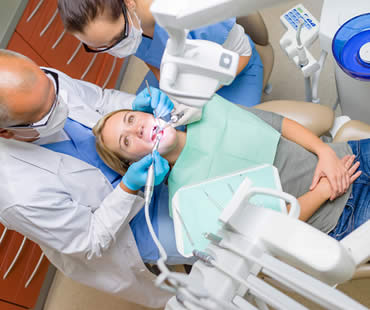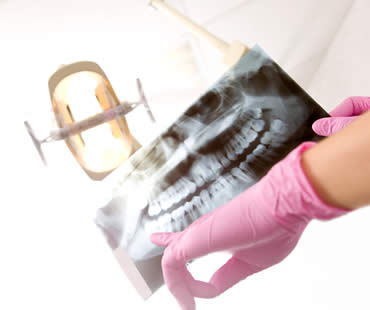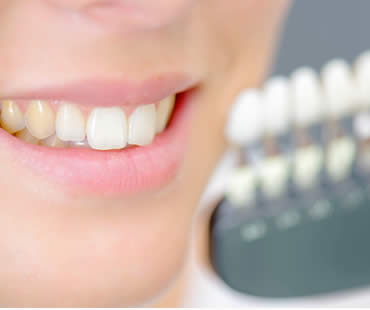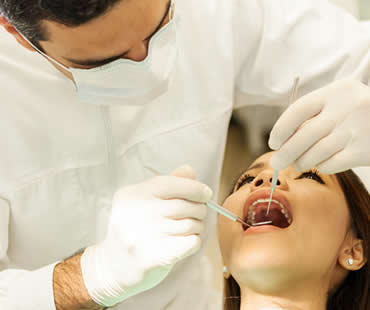
Surgery to remove wisdom teeth is one of the most common procedures that oral surgeons and dentists perform. It is important to follow your doctor’s instructions afterwards for the best chances of quick and complete recovery. Here are some tips for taking care of yourself after wisdom tooth extraction.
Watch your diet:
Your dentist will give you a list of suggested foods you can it after surgery, and ones to avoid. Stick with soft or liquid foods for the first couple of days, and do not eat hard or sharp foods like chips. Avoid carbonated drinks, hot beverages, and spicy foods because they can irritate your surgery site. After the first few days, begin introducing your regular diet as is comfortable.
Take your medications:
You will likely receive a prescription for painkillers to help relieve discomfort, as well as reduce swelling. This in turn can lower your risk for infection too. Take your medication as prescribed by your dentist for the optimum results. If your extraction is simple, prescription medication may not be required. You can take over-the-counter medications if your dentist agrees and you follow the directions on the label. Do not take aspirin, however, because it can thin your blood and increase bleeding at your extraction site.
Brush carefully:
Instead of brushing with your toothbrush, gently wipe the site with clean, wet gauze. Rigorous brushing can hurt the healing process, and you should even avoid rinsing your mouth for at least 24 hours after surgery. On the second day, you can rinse your mouth gently with salty water. Do not spit forcefully, which can dislodge the blood clot on your extraction site. Also, do not rinse with mouthwash that contains any alcohol.
Avoid alcohol and tobacco:
Drinking alcohol may thin your blood, prevent clotting, and delay healing. Smoking can have similar effects, as well as dislodge the clot when you inhale on a cigarette. For the best chances of healing, avoid these products for at least 24 hours after wisdom tooth extraction.
Contact one of our dental offices Ryde, Campsie, Kogarah, and Haymarket

While not everyone needs to have their wisdom teeth removed, third molars are the most likely to cause you serious dental problems. Monitoring the health of your wisdom teeth, with cooperation from your dental professional, is the best way to avoid serious complications before they arise. The following are indications you may need to consider oral surgery to extract trouble wisdom teeth:
- Wisdom tooth pain could be a result of infection and decay. Third molars are the most difficult to clean, due to their position at the back of the mouth, making them a prime breeding ground for plaque and bacteria which then attacks the tooth.
- If you have a small mouth, the emergence of wisdom teeth can cause crowding of existing teeth. As wisdom teeth appear they may begin to force your other teeth out of the way, causing misalignment. Removing the third molars makes room for existing teeth.
- Wisdom teeth that do not emerge properly can cause irritation to the gums that may lead to gum infections and immense discomfort.
- When wisdom teeth start to emerge at awkward angles, it can cause them to become impacted. Third molars that get stuck in the gums sometimes create pockets that harbor bacteria and debris that cause serious decay and infection, as well as bad breath issues.
While not all wisdom teeth require extraction, there are many complications associated with third molars that indicate removing them would be in your best interest. By monitoring the emergence and ongoing health of your wisdom teeth, you can avoid serious dental problems. Consult with your dentist about the condition of your wisdom teeth to ensure a lifetime of healthy teeth.
Contact one of our dental offices Ryde, Campsie, Kogarah, and Haymarket

Oral surgery to correct problems with the jaw is known as orthognathic surgery. Jaw issues can result from birth defects, changes due to growth, or injury or trauma to the face. While orthodontics can correct bite problems when only the teeth are involved, oral surgery may be required when repositioning of the jaw is necessary to correct the issue. If you suffer from any of the following concerns, orthognathic surgery may be a consideration:
- Difficulty chewing, biting or swallowing
- Problems with opening and closing your mouth, or with speaking
- Persistent jaw or temporomandibular joint pain
- Clenching or grinding of teeth causing excessive wear to the teeth
- Inability to make the lips meet without straining
- Un-proportional facial appearance or protruding jaw
- Malocclusion, open, or incorrect bite
- Recessive lower jaw and chin
- Sleep apnea and breathing problems
Most jaw surgeries are performed completely in the mouth, so no facial scars are visible. The oral surgeon makes cuts in the jawbone and then moves them to the correct position. Once the jaw is correctly aligned, screws and bone plates are placed to secure the jaw into the new position. Sometimes it may be necessary to add extra bone to the jaw from your hip, leg, or rib.
Orthognathic surgery is performed by an oral and maxillofacial surgeon usually in a hospital setting. Recovery time from jaw surgery takes three to six weeks. Your general or family dentist should be able to refer you to a skilled oral surgeon for a consultation and examination to determine a treatment plan. Jaw surgery can improve not only your facial appearance, but also chewing, speaking and breathing functions.
Contact one of our dental offices Ryde, Campsie, Kogarah, and Haymarket

It’s hard to miss with advertisements and visits to the dentist that tartar is something you want to avoid for good oral health. But do you know what this substance is, how to keep from getting it, and what to do if tartar does develop?
What’s so bad about tartar?
Even if you brush and floss regularly, it’s impossible to get rid of all of the bacteria in your mouth. Bacteria and food residue combine to form plaque on your teeth. If left to thrive, plaque attacks your teeth and gums. It causes decay, gum inflammation, and will harden into tartar if not removed before it has the chance.
What does it do to my teeth and gums?
Tartar buildup makes it more difficult to brush and floss well, and tartar along your gums may lead to gum disease. Mild gum disease, or gingivitis, is often caused by plaque and tartar on your teeth. It can usually be reversed with careful dental hygiene. If left untreated, it will progress into periodontitis. This more serious gum disease can damage the bones and tissue that support your teeth, increasing your risk of tooth loss. It may also cause infections that contribute to heart disease and other health problems.
How can I control tartar?
Here are some ways to prevent tartar formation:
- Brush at least twice daily long enough to thoroughly clean every tooth and all of your gums. Consider using an electric toothbrush, which may be more effective for plaque removal.
- Use tartar-control fluoride toothpaste. It is formulated to help prevent tartar formation, and the fluoride can repair damage to your teeth that may have already begun.
- Floss every day to reach the areas that brushing cannot.
- Eat a healthy diet low in sugars and starches, and limit snacks between meals. Drink plenty of water to help rinse away plaque and bacteria.
- Don’t smoke because tobacco use has been shown to increase tartar buildup.
How do I get rid of it?
A professional cleaning is the only way to successfully remove tartar. See your dentist every six months for checkups and cleanings.
Contact one of our dental offices Ryde, Campsie, Kogarah, and Haymarket

It is estimated that ten million impacted wisdom teeth are removed every year. This means that you or someone you know has probably experienced this type of oral surgery. Even so, the thought of wisdom tooth extraction strikes fear and apprehension in many people. Knowing more about why it’s necessary and the procedure itself may alleviate your concerns.
Wisdom teeth are the furthest teeth in the back of your mouth, and come in later than all of your other teeth. Sometimes they don’t erupt at all, becoming stuck or impacted in your gums. Even if they do come in naturally, they may not fit in your mouth properly with the rest of your teeth.
There are some common issues that necessitate the removal of wisdom teeth. These include:
- Impaction – impacted teeth may grow sideways and even damage your jawbone.
- Infection – teeth that partially erupt can cause openings in your gums that allow bacteria inside, causing sometimes serious infections.
- Tumors and cysts – complications like tumors and cysts can develop around impacted wisdom teeth, sometimes damaging to the gums and jaw.
- Pressure – impacted teeth can pressure the surrounding teeth, causing abnormal growth, tooth decay, and orthodontic problems.
The best way to avoid these types of issues is to have your wisdom teeth surgically removed. Many dentists recommend removing them even before you’re experiencing problems, so that you avoid problems later. Your dentist may refer you to an oral surgeon. After a consultation and examination including X-rays, a treatment plan will be determined.
Wisdom tooth extraction is an outpatient procedure in the surgeon’s office, using some level of anesthesia. Sometimes only local anesthesia is required, while some cases benefit from deeper levels of anesthesia for your comfort and health. Afterwards, you will experience some discomfort and should follow the doctor’s advice for care. Ice, pain medications, a soft diet, and rest are advised. A follow-up visit will be scheduled to monitor your healing. Typically, you will be back to normal in a few days and won’t have to worry about your wisdom teeth again.
Contact one of our dental offices Ryde, Campsie, Kogarah, and Haymarket

While minor gum recession can be treated by your dentist with deep cleaning and antibiotics, serious gum recession can only be treated with oral surgery. A loss of bone and gum pockets that are very deep require gum surgery to address the pain and damage left by acute gum recession.
Three treatments are used primarily in the treatment of serious gum recession, in order of invasiveness: pocket depth reduction, regeneration, and soft tissue graft. Pocket depth reduction involves a deep cleaning of the affected area. The periodontist folds the gum tissue back and utilizes tooth scaling and root planing to remove any tartar and plaque built up around the tooth. Once the gum pockets are clean, the surgeon pulls the gum tissue gently around the tooth, eliminating the deep pockets altogether or significantly reducing their depth.
Regeneration utilizes a similar treatment to pocket depth reduction, but it also addresses any bone loss that occurred due to acute gum recession. In this process, a regenerative agent such as graft tissue, membranes or tissue stimulating proteins is added to the affected area. The gum tissue is then tucked into place and stitched down. Over time, the regenerative agent will work to rebuild lost bone and tissue, leaving healthy and thriving tissue behind.
The most common soft tissue graft is taken from the patient’s own mouth, either by removing tissue from the roof of the mouth or from the gum tissue near the affected tooth. The healthy gum tissue is placed in the affected area, over the exposed tooth root, protecting it from infection and damage.
To prevent the need for oral surgery to address your receding gums, have good oral hygiene habits. Brush, floss and see your dentist twice a year for checkups and professional cleanings. Talk to your dentist if you have any other questions about how to reverse or prevent gum recession.
Contact one of our dental offices Ryde, Campsie, Kogarah, and Haymarket









